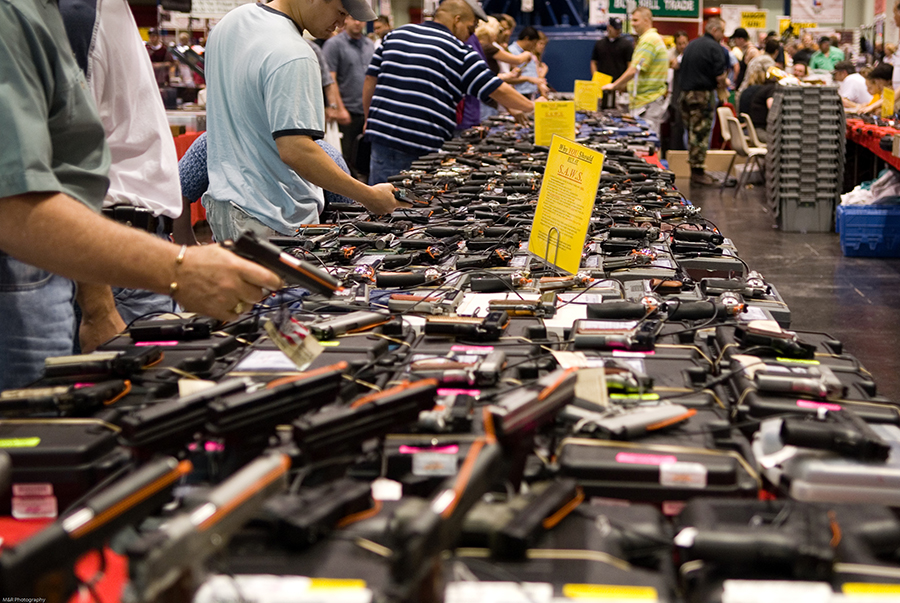
New York, New Jersey, Connecticut, Rhode Island and recently, Massachusetts, have created a coalition to share current gun data, particularly on gun owners. This effort is seeking to combat the current “gun epidemic” in the United States.
Along with Puerto Rico and Delaware, Massachusetts joined the “States for Gun Safety” coalition Monday. With these new members, the coalition now represents over 35 million people nationwide.
The announcement of the formation of the coalition on Feb. 22 followed the shooting at the Marjory Stoneman Douglas High School in Parkland, Florida just over a week earlier. The shooter killed 17 people.
The coalition, in a memorandum of understanding, stated that this group was necessary due to the “loss of innocent lives” because of the federal government’s failure to protect the country. It states that despite the presence of gun control laws of the states involved, those laws are often “significantly eroded” due to people coming and transporting guns across borders from states that have less restrictive laws.
Massachusetts Gov. Charlie Baker said in a statement that joining the coalition will “enhance the strong gun control measures” currently in place in the Commonwealth as well as promoting stronger communication between states to “keep our communities safe.”
Annie White, 61, of Dorchester, said she respects Baker for recognizing the need for Massachusetts to take a firm stance on gun control.
“It’s really important for Massachusetts to stand up against gun accessibility, especially after the Florida school shooting,” White said. “We need to take a stand and show that we’re not okay with this happening again, not in our communities or any other.”
The memorandum states that a multi-state task force will be created to trace and intercept illegal guns and will establish a regional gun violence research consortium to help develop new “evidence-based” strategies to end gun violence.
Participating states will also increase efforts to collect and share gun data across state lines.
Michael Meltsner, a law professor at Northeastern University, wrote in an email that he thinks the memorandum could be beneficial, but that people should be holding each state accountable to their commitment.
“… I think the most important aspect of the agreement is contained in the last substantive paragraph of the memorandum of understanding which provides for an interstate partnership to support gun research,” Meltsner wrote. “Given the present congressional ban on such research[,] this could be a significant step in our learning more about how to facilitate gun safety.”
Jim Wallace, executive director of the Gun Owners’ Action League of Massachusetts, said he supports the move by Massachusetts to join this coalition.
“I am mostly shocked — most of the things in here — why haven’t they been doing this for years?” Wallace asked. “If we are truly trying to identify potential killers — if we are dealing with gun trafficking, illegal trafficking — why hasn’t this been done for years?”
Wallace said he believes these steps should have been taken a long time ago, and that they bring up a large issue of the “human” side of the gun control debate.
“We also just found out that Massachusetts has not been keeping compliant with the national list and check system,” Wallace said. “They are way behind in getting their records up to date, which surprised me. That’s something where, if this had been kept updated, some of this would have already been happening.”
In terms of something like this being conducted on a national level, Wallace said had one hesitation about the type of information that would be shared.
“I get really cautious when people start talking about sharing lists,” Wallace said. “We already have the national list and check system which is supposed to have all the information on people who are prohibited from either mental health issues or criminal issues. We definitely don’t want dangerous people to have guns, but in Massachusetts, a police chief can deny you a license for virtually no reasons.”
Lucy Shulson, 32, of Downtown Boston, said she thought that states working together could be powerful in the absence of federal legislature.
“Without a doubt, this is the first step we can take to having more nationalized gun legislation, because clearly, our legislators aren’t going to do this at a national level so it’s going to probably fall on states like Massachusetts,” Shulson said.




